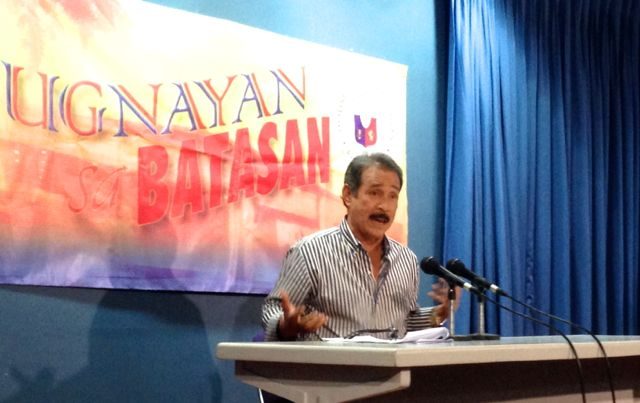SUMMARY
This is AI generated summarization, which may have errors. For context, always refer to the full article.

MANILA, Philippines – A “less strict” version of the anti-political dynasty bill, which bans relatives from holding public office simultaneously, is expected to pass the House of Representatives on second reading.
“The signal of the House seems to be favorable and makes it brighter that this anti-political dynasty bill might be passed for second reading before the House goes into recess,” Capiz 2nd District Representative Fredenil Castro said on Tuesday, June 9.
According to the original version of the bill, a political dynasty exists “when two or more individuals who are related within the second degree of consanguinity or affinity hold or run for national or local office in successive, simultaneous, or overlapping terms.”
Castro, chair of the House committee on suffrage and electoral reforms, said the new version of the measure will now allow up to two members of a political clan to hold public office at the same time.
They could either both hold national positions, local positions, or a combination of a national and a local position.
Castro said there was also a consensus to allow relatives to run for office in different provinces or districts.
But he clarified that this has yet to be added to the proposed measure.
“There is a consensus that we may allow a 3rd or 4th family member to run in a different province. But this is still only consensus because it has not yet been embodied in the proposed anti-dynasty bill,” Castro said.
“It may not be as strict as the original version but we are [making it a little bit lax] without defeating the purpose of the law. Because if a member of a political clan runs in a different province, city, or barangay, his dynasty does not operate there. It only operates in his own municipality, in his own province,” he added.
Lawmakers are expected to vote on the measure on Wednesday, June 10, before Congress goes on break.
To prevent would-be candidates from circumventing the prohibition, the proposed measure also covers those running for office through the party list or for barangay positions.
The bill also covers common-law spouses and even illegitimate children, Castro added.
“The anti-political dynasty bill is not prohibitory in nature. It is only regulatory. What is worse is when members of a political clan run and hold office en masse,” Castro said.
If enacted into law, it will not affect incumbent officials already in office who have “acquired the vested right to finish [their] terms,” he added.
In May 2014, after nearly 3 decades of being stuck at committee level, House Bill 3587 or the Act Prohibiting the Establishment of Political Dynasties was sponsored before the plenary of the House of Representatives.
Castro earlier said the lack of enabling law has prevented the implementation of the anti-political dynasty provision in Article II, Section 26, of the Constitution.
Article II Section 26 of the 1987 Constitution of the Philippines states: “The State shall guarantee equal access to opportunities for public service, and prohibit political dynasties as may be defined by law.” – Rappler.com
Add a comment
How does this make you feel?
There are no comments yet. Add your comment to start the conversation.